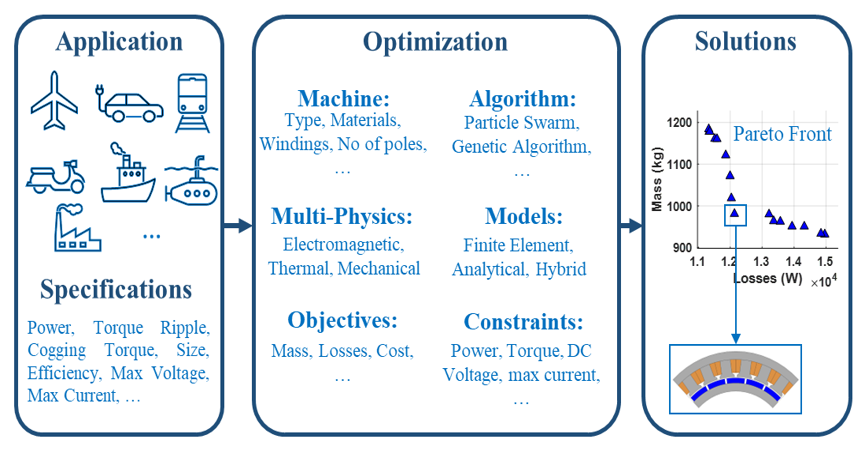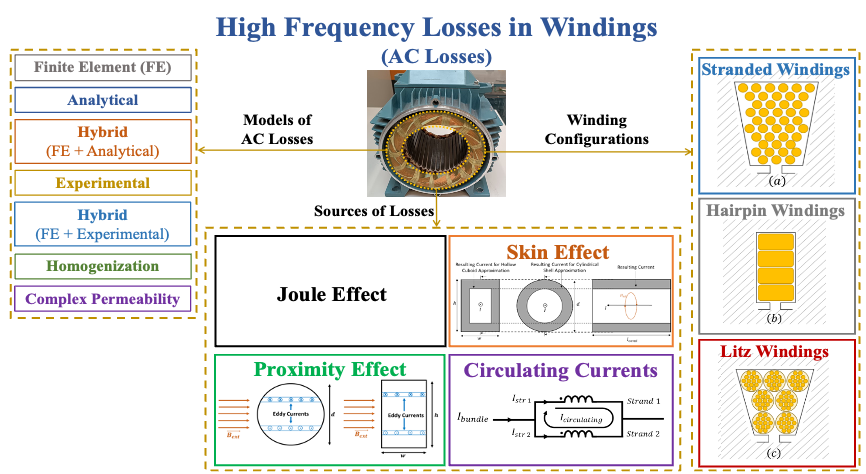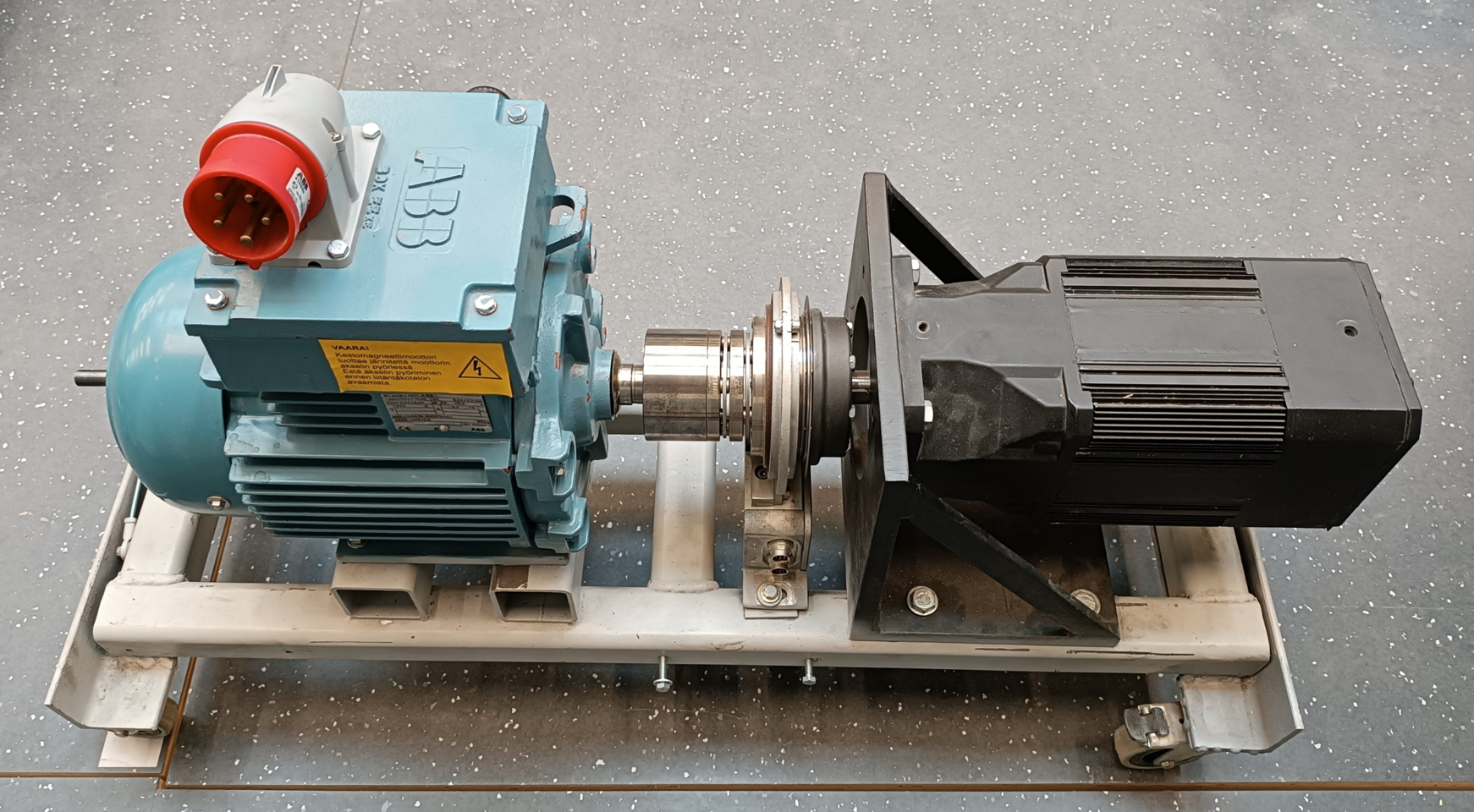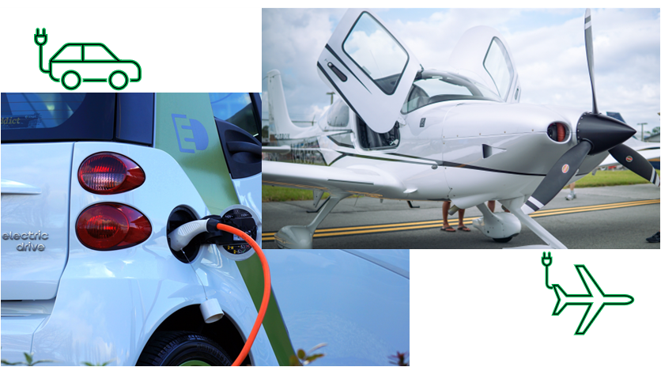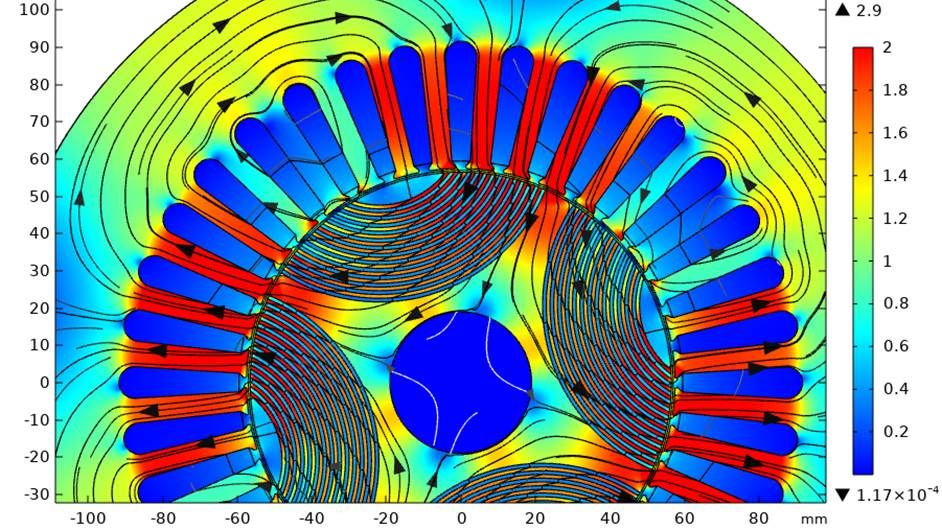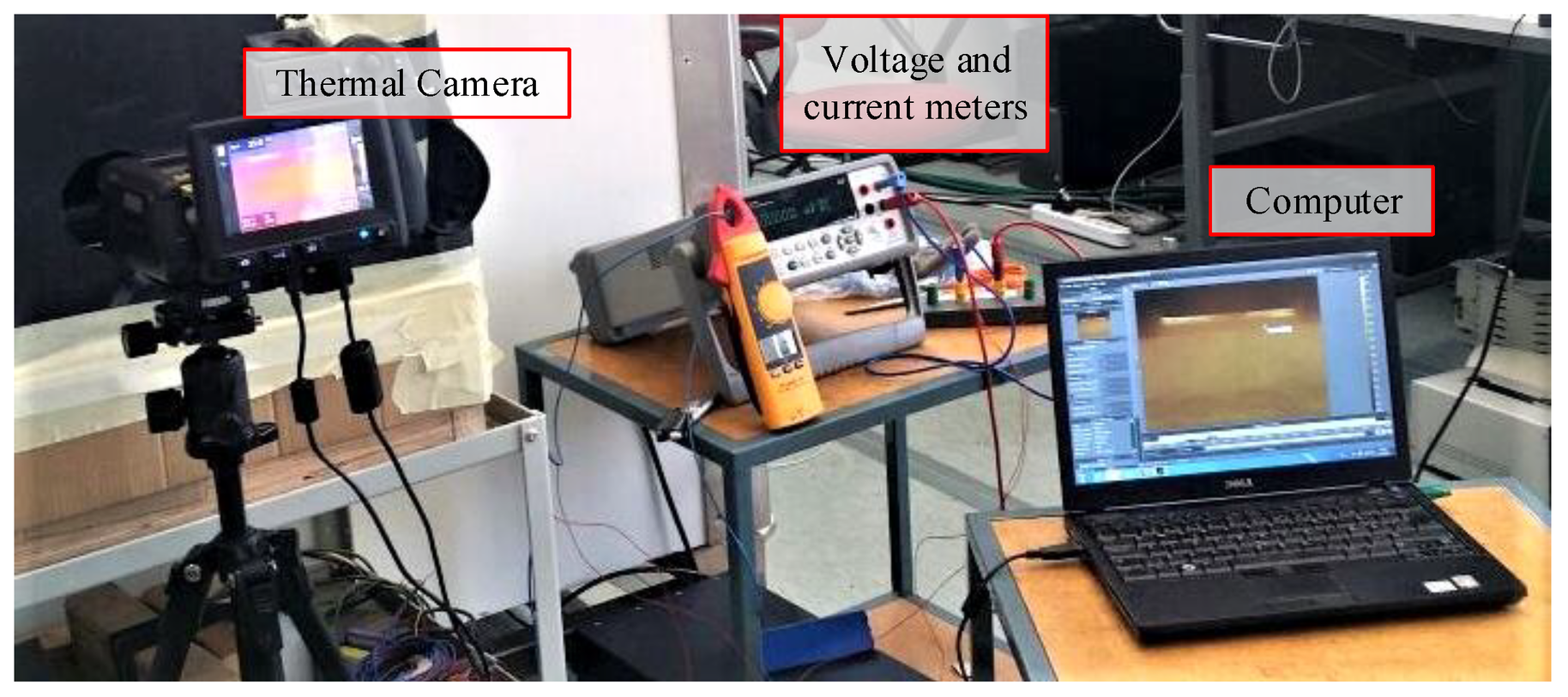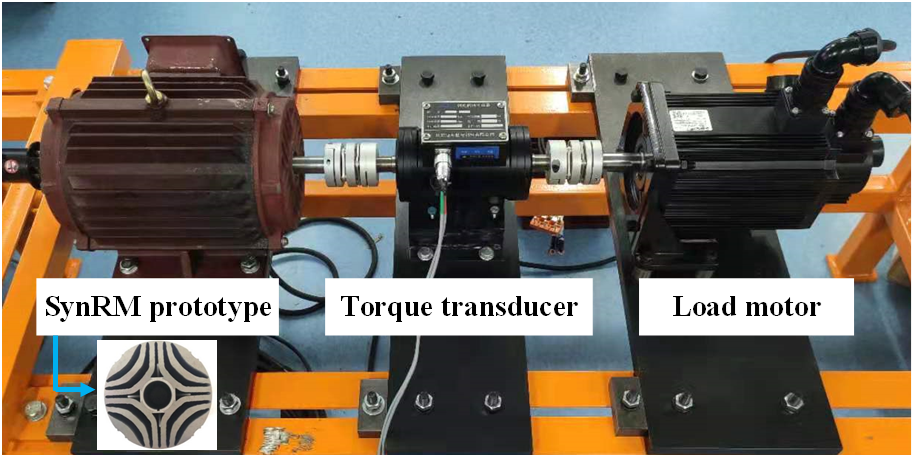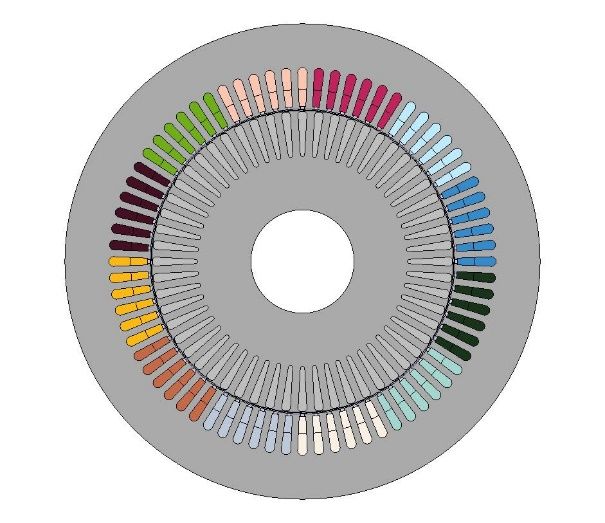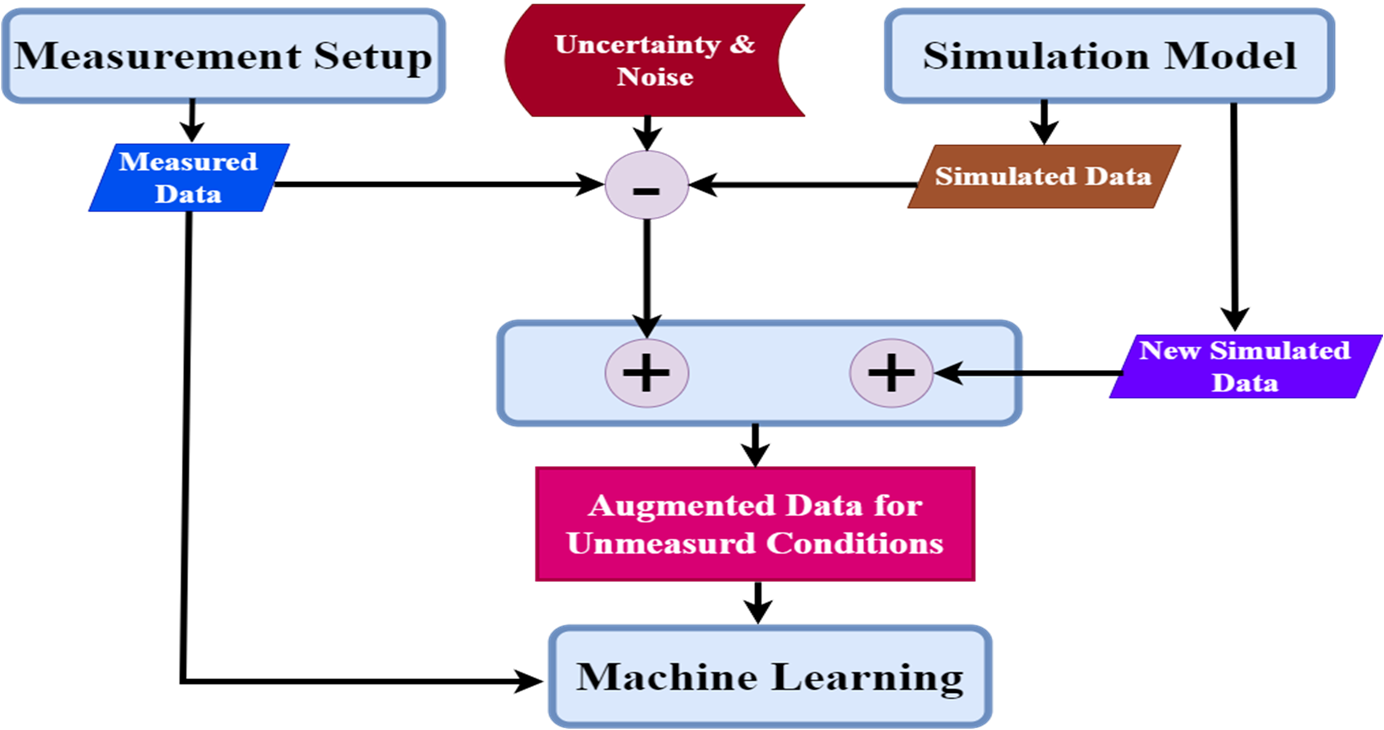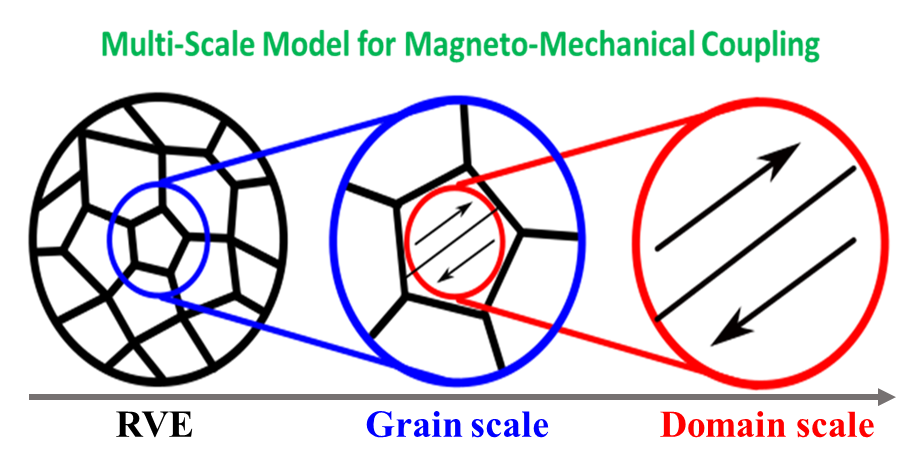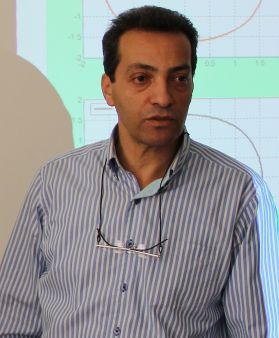Electromechanics

About the group
The Group of Electromechanics is led by Professor Anouar Belahcen.
The group aims to address timely research topics related to electrical machines with the integration of electrical, mechanical, and thermal aspects.
We develop our own methods and related softwares and validate the methodology through experimental procedures in our own facilities. Some of the methods we develop are also incorporated in commercial softwares for better transfer of knowledge to our stakeholders. The group has the facilities to test electrical machines with power up to 150 kW. Test results are typically needed for the validation of the numerical methods and models developed.
The group is conducting research on the design and optimization of machines for industrial applications. This research includes transport electrification by designing next generation of machines dedicated to More Electric Aircraft (MEA) and Electric Vehicles (EV).
Yet another major topic is the numerical modeling of coupled problems that occur in magnetic materials and especially electrical steel sheets used to construct electrical machines. These problems range from energy dissipation in the material to vibrations and noise of electrical machines and devices.
The group is involved in various national, european, and international research projects and collaborates with industrial and academic partners around the globe.
The group is open for meaningful collaboration: Contact us.
Follow our latest research updates:
Current Research Projects
The Centre of Excellence in High-Speed Electromechanical Energy Conversion Systems (HiECSs) was launched via the Academy of Finland's Centre of Excellence Programme 2022-2029. HiECSs will establish the necessary theories and tools for renewing the understanding of high-speed electromechanical drivetrains: high-speed electrical machines and the associated machinery.
LUT and Aalto have kicked off a 2-year project (HiPerHP) to take steps towards commercialization of high-speed turbomachine technology for industrial heat pumps. This electrification initiative is important, as process heat consumes 66% of the total heat in EU and about 80% share is produced by fossil fuels. The basic technology has been developed in LUT and HiECSs Center of Excellence.
The project consortium is led by Aalto University and members include Kathmandu University and Tribhuvan University from Nepal, Royal University of Bhutan, and Tallinn University of Technology, Estonia. The project duration is three years (January 2023 - December 2025). The CEEECoM project aims to address the problems related to the expert workforce in the field of diagnosis, monitoring, and maintenance of the power systems and related components in the partner countries Nepal and Bhutan. The project will help Nepal and Bhutan to produce in-house human resources in the field of condition monitoring of power equipment making both countries independent of external consultants.
This research project aims at developing modern artificial intelligence-based methods for condition monitoring of electromechanical energy conversion systems, or powertrains. To ensure safe and efficient operation of these powertrains, it is essential to predict their incipient faulty operations at an early stage. By combining experimental results on hardware with simulation results, we will produce synthetic augmented data to be used to train the artificial intelligence (AI) algorithms. These algorithms will also combine data from different application domains, allowing the transfer learning. Moreover, AI will guide the simulation setups to optimally invest the computational resources into relevant simulations. The results of the project are expected to produce new knowledge on how to optimally leverage AI algorithms for energy conversion systems. We will also build a variety of simulation models, which can be used for other purposes such as system optimization and control design.
Past Research Projects
Electrical motors consume about 40 % of the electrical energy produced in the European Union. About 90 % of this energy is converted to mechanical work. However, 0.5-2.5 % of it goes to so called additional load losses whose exact origins are unknown. Our ambitious aim is to reveal the origins of these losses, build up numerical tools for modeling them and optimize electrical motors to minimize the losses.
The proposed research project is related to energy efficiency of electrical applications such as rotating machines and transformers. The research focuses on developing models and design tools for coupling physical magneto-mechanical models and the manufacturing process of iron alloys in order to find an optimized material for specific applications. The manufacturing process of ferromagnetic materials influences significantly the magneto-mechanical properties of the iron core of electrical applications. These effects are reflected as power losses and vibrations in different locations of the devices. Hence, it would be of great academic interest to develop and validate tools which allow designing more efficient electrical machines and transformers. Thus, the outcome of this research could take part in reducing both the CO2 emissions and the manufacturing cost and energy for the industry and the final users.
Previous PhD
Ismet Tuna Gürbüz, 2024
Brijesh Upadhaya, 2022
Models of Magnetic Anisotropy for Nonoriented Silicon Steel Laminations of Electrical Machines
Asad Bilal, 2021
Victor Mukherjee, 2020
Design and Analysis of Bearingless Synchronous Reluctance Machines
Ravi Sundaria, 2020
Effect of Manufacturing Processes on Electrical Machine’s Performance
Sabin Sathyan, 2020
Magneto-vibro-acoustic Computational Techniques for Electrical Machines
Mehrnaz Farzam Far, 2019
Model Order Reduction for Simulation and Control of Synchronous Machines
Ugur Aydin, 2018
Multiaxial Magneto-Mechanical Interactions in Electrical Steel Sheets
Antti Lehikoinen, 2017
Circulating and Eddy-Current Losses in Random-Wound Electrical Machines
Bishal Silwal, 2017
Power Balance in the Finite Element Analysis of Electrical Machines
Deepak Singh, 2016
Javier Martinez, 2015
On the different magneto-mechanical waves in faulty induction motors
Paavo Raisio, 2012
Jenni Pippuri, 2010
Zlatko Kolondzowski, 2010
Thermal and mechanical analyses of high-speed permanent-magnet electrical machines
Katarzyna Anna Fonteyn, 2010
Energy-based magneto-mechanical model for electrical steel sheets
Emad Ali Dlala, 2008
Magnetodynamic vector hysteresis models for steel laminations of rotating electrical machines
Group members



Alumni
Ismet Tuna Gürbüz
Brijesh Upadhaya
Asad Bilal
Victor Mukherjee
Ravi Sundaria
Sabin Sathyan
Mehrnaz Farzam Far
Ugur Aydin
Antti Lehikoinen
Bishal Silwal
Deepak Singh
Javier Martinez
Paavo Rasilo
Jenni Pippuri
Zlatko Kolondzowski
Katarzyna Anna Fonteyn
Emad Ali Dlala
Publications
Latest publications







